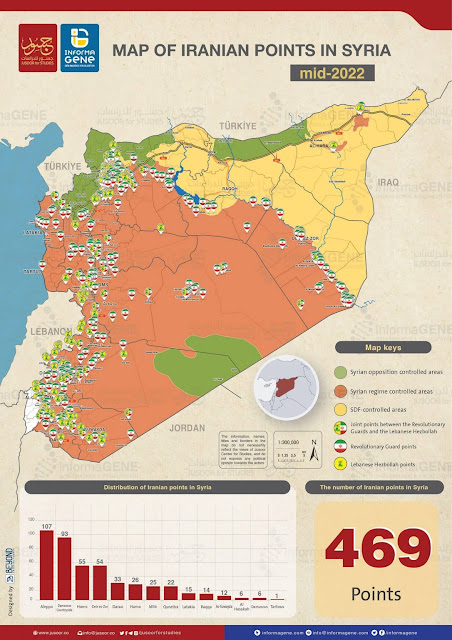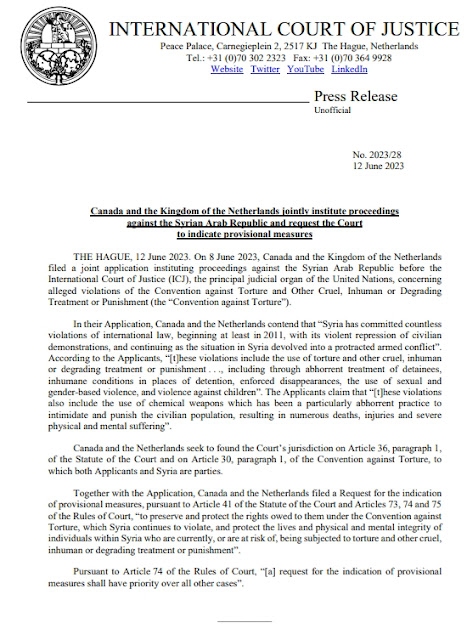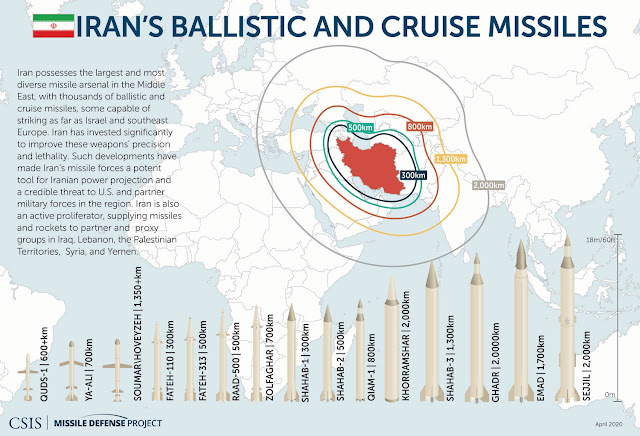U.S.-Iraq Economic Commission Seeks Iraq's Economic Revival
Participants sign trade, investment, cooperation agreements
Top U.S. and Iraqi economic and trade officials met in Amman, Jordan, July 10-11 to discuss strategies to promote economic revival in Iraq. The participants in the U.S.-Iraq Joint Commission on Reconstruction and Economic Development addressed Iraq’s economic reform plans; its development strategy with regard to the energy, agricultural and private business sectors; and bilateral trade issues.
The participants signed a series of agreements on bilateral trade, investment and economic cooperation. They also reviewed Iraq’s efforts to gain accession to the World Trade Organization.
Iraqi Finance Minster Ali Allawi co-chaired the commission along with Deputy Secretary of State Robert Zoellick.
Following is the joint communiqué issued by the participants and a fact sheet outlining their accomplishments:
(begin text)
U.S.-IRAQ JOINT COMMISSION ON RECONSTRUCTION AND ECONOMIC DEVELOPMENT
JOINT COMMUNIQUE
July 11, 2005
Amman, Jordan
The U.S.-Iraq Joint Commission on Reconstruction and Economic Development met on July 10 and 11, 2005 in Amman, Jordan. Iraqi Finance Minister Ali Allawi and U.S. Deputy Secretary of State Robert B. Zoellick co-chaired the Commission and led interagency delegations representing the full range of economic, development, and trade ministries and agencies.
The Joint Commission on Reconstruction and Economic Development supersedes the Joint Economic Commission that met twice in 2004 and twice in 2005 in Washington and Baghdad. It was renamed to reflect a broader and clearer focus on joint efforts by the Iraqi and U.S. governments to facilitate economic revival, development and growth. Key topics include macroeconomic and structural reform; Iraq's National Development Strategy; the energy sector, the agricultural sector; private sector development and job creation; and trade issues, including WTO accession and U.S. trade assistance policies.
The two sides signed two important executive agreements on trade and investment. The U.S.-Iraq Investment Incentive Agreement makes available to private U.S. investors in Iraq and their Iraqi partners a range of risk insurance and project financing programs offered through the Overseas Private Investment Corporation. The U.S.-Iraq Trade and Investment Framework Agreement establishes a joint intergovernmental council that will meet regularly to expand bilateral trade and investment, and to coordinate actions in support of Iraq's accession to the World Trade Organization.
The Iraqi side welcomed President Bush's June 29 announcement expanding duty free trade benefits in the United States under the Generalized System of Preferences to include dried dates. Dates are Iraq's largest non-oil export and a traditional agribusiness industry throughout the country. The two sides discussed measures to further develop Iraq's date industry through USAID's $100 million agricultural assistance program, as well as steps to ensure Iraqi date exports meet U.S. sanitary and phytosanitary requirements.
The two sides agreed to revive the Commercial, Economic and Technical Cooperation Agreement of 1987, in which the U.S. Department of Commerce and Iraq's Trade Ministry agreed jointly to promote private sector business opportunities. As the first activity under the revived agreement, the U.S. Commerce Department's National Institute of Standards and Technology will host a Standards in Trade Workshop for officials from the Ministry of Construction and the Central Organization for Standards and Quality Control. The U.S. Export-Import Bank discussed additional financing under its $500 million credit insurance facility with the Trade Bank of Iraq.
Recognizing that a key element of Iraq's economic renaissance is economic reform, Iraq informed the U.S. side of its plans to adopt and implement reforms, setting economic initiatives to bring about policy stability in the long term, and to develop the private sector as an engine of job creation and economic growth. The Iraqi side discussed its plan for a phased series of fuel subsidy reforms, to be submitted to the Council of Ministers this summer, and examined proposals to replace the existing Public Distribution System of subsidized food. The Iraqi side outlined measures to maintain fiscal stability, implement its 2005 budget, and prepare a 2006 budget. The Iraqi side announced that its Foreign Trade Memorandum is ready for submission to the World Trade Organization. This Memorandum, which includes the program of legislation that Iraq intends to enact in order to comply with WTO rules, is a critical step on Iraq's path to WTO accession. The Iraqi side also announced the opening of an Investment Promotion Agency, supported by USAID. This new agency will help Iraqi and foreign investors open businesses in Iraq.
The two sides reviewed progress on Iraq's efforts to reach debt reduction agreements with its non-Paris Club creditors and re-affirmed the need to secure terms comparable to those of the Paris Club debt agreement of November 2004, i.e., at least 80 percent reduction in net present value terms. The two sides discussed the status of Iraq's programs with the IMF and World Bank. The United States reaffirmed its support for Iraq's efforts to conclude a Stand-By Arrangement with the IMF in the fall of 2005. Iraq noted progress in talks to launch disbursement of the World Bank pledge of lending and technical assistance made at the October 2003 Madrid Conference.
In the area of assistance, the two sides signed two important agreements. The U.S.-Iraq Agreement for Economic and Technical Cooperation establishes the legal framework for a long-term U.S. development assistance partnership with Iraq. A bilateral Memorandum of Understanding on Agricultural Cooperation highlights the priority both sides attach to developing this key sector in Iraq and specifies the areas where the U.S. Government will provide technical assistance, including restoring the Iraqi marshlands, introducing new crop and livestock production techniques, and providing credit to Iraqi farmers.
The Iraqi side presented its vision for a future legal and regulatory framework in the energy sector, focusing on options for restructuring of the oil industry, and encouraging investment in natural gas infrastructure for power generation purposes. Senior officials from the U.S. Department of Energy, the U.S. Trade and Development Agency and the Iraqi Ministers of Oil, Electricity and Water Resources held bilateral consultations covering issues of technological cooperation and training. Both sides examined the role of oil revenue, and the importance of transparency in implementing budget and national development policies.
Following up on the international support for Iraq demonstrated at the June 21-22 Brussels Conference, the Iraqi side consulted with the U.S. side on donor coordination issues in preparation for the upcoming International Reconstruction Fund Facility for Iraq donor committee meeting in Jordan July 18 and 19.
Both sides affirmed the importance of continuing the Joint Commission on Reconstruction and Economic Development in order to coordinate and intensify efforts to revive Iraq's economy and re-integrate Iraq into the world economy. They agreed to meet again in the fall of 2005.
FOR THE IRAQI
TRANSITIONAL GOVERNMENT
Ali Abd al-Amir Allawi
Minister of Finance
FOR THE GOVERNMENT
OF THE UNITED STATES OF AMERICA
Robert B. Zoellick
Deputy Secretary of State
(end communiqué )
Source: International Information Programs, U.S. Department of State
Participants sign trade, investment, cooperation agreements
Top U.S. and Iraqi economic and trade officials met in Amman, Jordan, July 10-11 to discuss strategies to promote economic revival in Iraq. The participants in the U.S.-Iraq Joint Commission on Reconstruction and Economic Development addressed Iraq’s economic reform plans; its development strategy with regard to the energy, agricultural and private business sectors; and bilateral trade issues.
The participants signed a series of agreements on bilateral trade, investment and economic cooperation. They also reviewed Iraq’s efforts to gain accession to the World Trade Organization.
Iraqi Finance Minster Ali Allawi co-chaired the commission along with Deputy Secretary of State Robert Zoellick.
Following is the joint communiqué issued by the participants and a fact sheet outlining their accomplishments:
(begin text)
U.S.-IRAQ JOINT COMMISSION ON RECONSTRUCTION AND ECONOMIC DEVELOPMENT
JOINT COMMUNIQUE
July 11, 2005
Amman, Jordan
The U.S.-Iraq Joint Commission on Reconstruction and Economic Development met on July 10 and 11, 2005 in Amman, Jordan. Iraqi Finance Minister Ali Allawi and U.S. Deputy Secretary of State Robert B. Zoellick co-chaired the Commission and led interagency delegations representing the full range of economic, development, and trade ministries and agencies.
The Joint Commission on Reconstruction and Economic Development supersedes the Joint Economic Commission that met twice in 2004 and twice in 2005 in Washington and Baghdad. It was renamed to reflect a broader and clearer focus on joint efforts by the Iraqi and U.S. governments to facilitate economic revival, development and growth. Key topics include macroeconomic and structural reform; Iraq's National Development Strategy; the energy sector, the agricultural sector; private sector development and job creation; and trade issues, including WTO accession and U.S. trade assistance policies.
The two sides signed two important executive agreements on trade and investment. The U.S.-Iraq Investment Incentive Agreement makes available to private U.S. investors in Iraq and their Iraqi partners a range of risk insurance and project financing programs offered through the Overseas Private Investment Corporation. The U.S.-Iraq Trade and Investment Framework Agreement establishes a joint intergovernmental council that will meet regularly to expand bilateral trade and investment, and to coordinate actions in support of Iraq's accession to the World Trade Organization.
The Iraqi side welcomed President Bush's June 29 announcement expanding duty free trade benefits in the United States under the Generalized System of Preferences to include dried dates. Dates are Iraq's largest non-oil export and a traditional agribusiness industry throughout the country. The two sides discussed measures to further develop Iraq's date industry through USAID's $100 million agricultural assistance program, as well as steps to ensure Iraqi date exports meet U.S. sanitary and phytosanitary requirements.
The two sides agreed to revive the Commercial, Economic and Technical Cooperation Agreement of 1987, in which the U.S. Department of Commerce and Iraq's Trade Ministry agreed jointly to promote private sector business opportunities. As the first activity under the revived agreement, the U.S. Commerce Department's National Institute of Standards and Technology will host a Standards in Trade Workshop for officials from the Ministry of Construction and the Central Organization for Standards and Quality Control. The U.S. Export-Import Bank discussed additional financing under its $500 million credit insurance facility with the Trade Bank of Iraq.
Recognizing that a key element of Iraq's economic renaissance is economic reform, Iraq informed the U.S. side of its plans to adopt and implement reforms, setting economic initiatives to bring about policy stability in the long term, and to develop the private sector as an engine of job creation and economic growth. The Iraqi side discussed its plan for a phased series of fuel subsidy reforms, to be submitted to the Council of Ministers this summer, and examined proposals to replace the existing Public Distribution System of subsidized food. The Iraqi side outlined measures to maintain fiscal stability, implement its 2005 budget, and prepare a 2006 budget. The Iraqi side announced that its Foreign Trade Memorandum is ready for submission to the World Trade Organization. This Memorandum, which includes the program of legislation that Iraq intends to enact in order to comply with WTO rules, is a critical step on Iraq's path to WTO accession. The Iraqi side also announced the opening of an Investment Promotion Agency, supported by USAID. This new agency will help Iraqi and foreign investors open businesses in Iraq.
The two sides reviewed progress on Iraq's efforts to reach debt reduction agreements with its non-Paris Club creditors and re-affirmed the need to secure terms comparable to those of the Paris Club debt agreement of November 2004, i.e., at least 80 percent reduction in net present value terms. The two sides discussed the status of Iraq's programs with the IMF and World Bank. The United States reaffirmed its support for Iraq's efforts to conclude a Stand-By Arrangement with the IMF in the fall of 2005. Iraq noted progress in talks to launch disbursement of the World Bank pledge of lending and technical assistance made at the October 2003 Madrid Conference.
In the area of assistance, the two sides signed two important agreements. The U.S.-Iraq Agreement for Economic and Technical Cooperation establishes the legal framework for a long-term U.S. development assistance partnership with Iraq. A bilateral Memorandum of Understanding on Agricultural Cooperation highlights the priority both sides attach to developing this key sector in Iraq and specifies the areas where the U.S. Government will provide technical assistance, including restoring the Iraqi marshlands, introducing new crop and livestock production techniques, and providing credit to Iraqi farmers.
The Iraqi side presented its vision for a future legal and regulatory framework in the energy sector, focusing on options for restructuring of the oil industry, and encouraging investment in natural gas infrastructure for power generation purposes. Senior officials from the U.S. Department of Energy, the U.S. Trade and Development Agency and the Iraqi Ministers of Oil, Electricity and Water Resources held bilateral consultations covering issues of technological cooperation and training. Both sides examined the role of oil revenue, and the importance of transparency in implementing budget and national development policies.
Following up on the international support for Iraq demonstrated at the June 21-22 Brussels Conference, the Iraqi side consulted with the U.S. side on donor coordination issues in preparation for the upcoming International Reconstruction Fund Facility for Iraq donor committee meeting in Jordan July 18 and 19.
Both sides affirmed the importance of continuing the Joint Commission on Reconstruction and Economic Development in order to coordinate and intensify efforts to revive Iraq's economy and re-integrate Iraq into the world economy. They agreed to meet again in the fall of 2005.
FOR THE IRAQI
TRANSITIONAL GOVERNMENT
Ali Abd al-Amir Allawi
Minister of Finance
FOR THE GOVERNMENT
OF THE UNITED STATES OF AMERICA
Robert B. Zoellick
Deputy Secretary of State
(end communiqué )
Source: International Information Programs, U.S. Department of State


